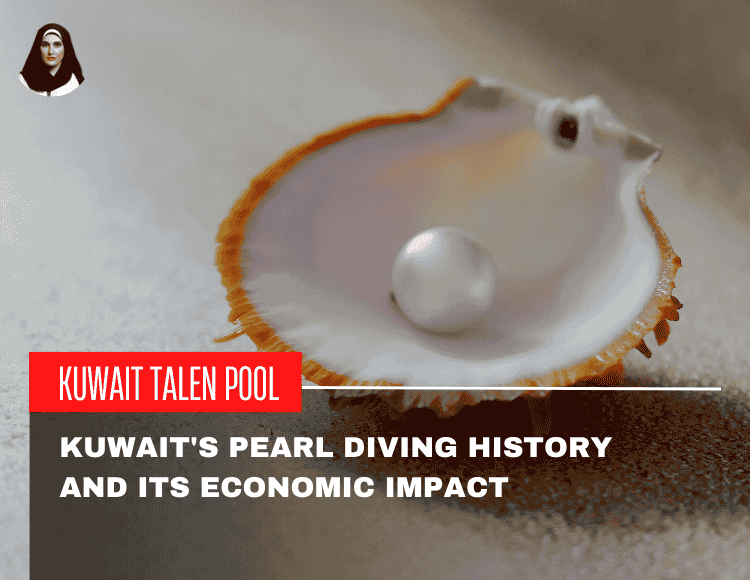Kuwait, a small nation nestled in the Arabian Gulf, has a long and rich history closely tied to the pearl diving industry. For centuries, pearl diving was not only a cornerstone of Kuwait’s economy but also deeply woven into its culture and identity. This article explores the history of pearl diving in Kuwait, its economic importance, cultural influence, and the lasting legacy that remains in the modern era.
The Beginnings of Pearl Diving in Kuwait
The Arabian Gulf has been famous for its pearl-rich waters for thousands of years. Kuwait’s prime location, with its clear coastal waters, made it a perfect spot for pearl diving. Although the exact start of Kuwait’s pearl diving industry is unclear, it became a significant part of the country’s economy in the 18th and 19th centuries.
Before cultured pearls were introduced, natural pearls were extremely valuable due to their rarity. Wealthy people and royals around the world desired these gems, driving demand and boosting the pearl trade in Kuwait.
How Pearl Diving Worked
Pearl diving was a risky and physically demanding job. Divers, known as “ghawas,” would dive deep into the Gulf waters, holding their breath for several minutes. They used basic tools like nose clips and finger guards to protect themselves.
Pearl diving involved teamwork. The captain (nukhatha), divers, and crew members on wooden dhow boats worked together to gather oysters from the seabed. Once collected, they carefully opened the shells, hoping to find valuable pearls. The size and quality of the pearls varied, and a successful trip depended on both the divers’ skill and the number of oysters in the area.
This activity took place during the calm summer months, known as the “ghaus” season, and it was a time of excitement and anticipation for the entire community.
Economic Importance of Pearl Diving
In the 18th and 19th centuries, pearl diving was a key part of Kuwait’s economy. The pearls collected were traded around the world, particularly in markets like India and Europe. This trade created significant wealth for Kuwaiti merchants and ship owners, who established strong trade networks.
Pearl diving also provided jobs for thousands of people. From divers to craftsmen, many benefited from the industry, which helped develop skills, grow local businesses, and encourage innovation.
Kuwait’s Position in the Global Pearl Market
Kuwaiti pearls were highly valued in the global market. The country became known for its high-quality pearls and earned a reputation for fair and reliable trade. Even though other Gulf states were also involved in the pearl trade, Kuwait distinguished itself through its expertise and strong partnerships.
The Decline of the Pearl Industry
The early 20th century marked a turning point for the pearl diving industry. The invention of cultured pearls made pearls more affordable and easily available, reducing demand for natural pearls. This shift hurt the economic viability of pearl diving in Kuwait.
Further economic changes, like the Great Depression in the 1930s, and the discovery of oil in Kuwait, shifted the country’s focus away from pearl diving. Oil became the new source of wealth, leading to a decline in the pearl industry.
Cultural Significance of Pearl Diving
While pearl diving is no longer an economic powerhouse, its cultural impact remains strong. The industry influenced many aspects of Kuwaiti life, including music, poetry, and folklore. The stories of the hardships and victories of the divers live on in songs and festivals.
Today, Kuwait continues to celebrate its pearl diving heritage through cultural events, museums, and preservation efforts. These initiatives help keep the memory of pearl diving alive for future generations.
Preserving Pearl Diving History
The Kuwaiti government has been instrumental in preserving this important part of its history. Institutions like the Kuwait Maritime Museum showcase artifacts and tell the story of the country’s pearl diving past. Additionally, events like the annual Pearl Diving Festival allow young people to experience the tradition firsthand.
Pearl Diving in Kuwait Today
Although it no longer plays a significant economic role, pearl diving continues to symbolize Kuwait’s rich heritage. It is a topic of interest in tourism, education, and media. Visitors can learn about pearl diving through museums and even participate in reenactments of traditional diving practices.
Conclusion
Kuwait’s history of pearl diving is a story of resilience and adaptability. For centuries, it was the backbone of the nation’s economy and an integral part of its identity. Although the industry has faded, its legacy endures through cultural preservation and modern-day celebrations. The story of Kuwait’s pearl diving history is a reminder of the country’s rich past and its ability to embrace new opportunities.
Please Note:
- We list jobs submitted by employers. kuwaittalentpool.com does not verify employers or guarantee job details.
- Be aware: legitimate jobs never require upfront payment

